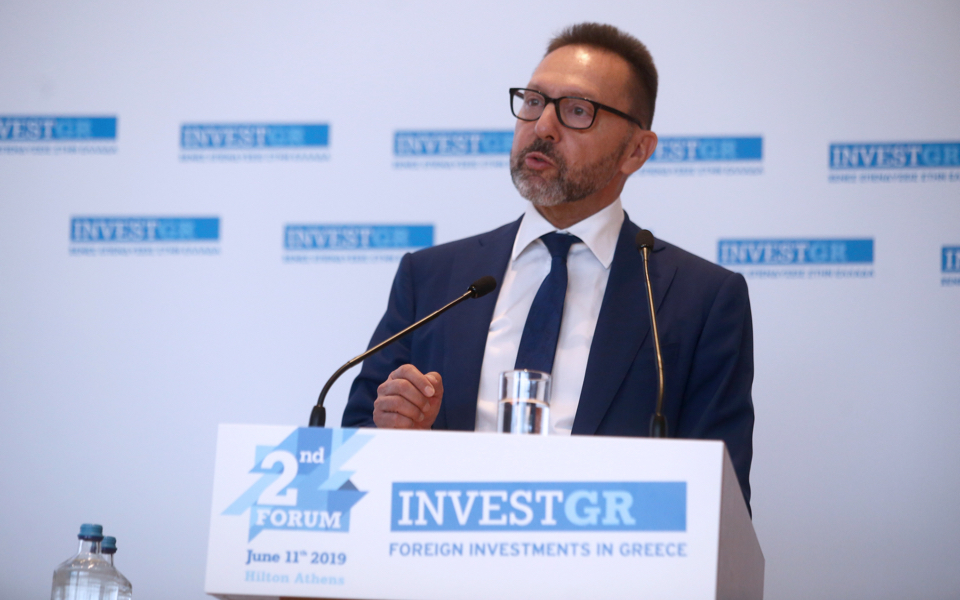BoG head: Primary surplus set to miss target

After the European Commission, Bank of Greece Governor Yannis Stournaras also warned on Tuesday that Greece will miss its budget target for this year as a result of the handouts promised by outgoing Prime Minister Alexis Tsipras. The central banker said the data available point to a primary surplus of 2.9 percent of gross domestic product.
According to the BoG, this means that the budget will show a shortfall of 0.6 percent of GDP or 1.1 billion euros from the target for a primary surplus of 3.5 percent of GDP. This is smaller than the Commission’s estimate for a shortfall of 1.2-1.4 percent of GDP this year (2.2-2.8 billion euros).
That is the problem created by the government’s management, particularly the policy of handouts ahead of the elections, but it is the administration to emerge from the July 7 polls that will have to deal with that.
According to Stournaras, as well as the policy announced by New Democracy, it would make sense to reduce the primary surplus target. Speaking yesterday at the 2nd InvestGR forum in Athens, the central banker argued that retaining high primary surpluses for a long period (Greece has pledged a 3.5 percent rate up to 2022 at least) has a negative impact on growth, which is exacerbated when accompanied by very high taxation.
Therefore, the former finance minister said, “in communication and agreement with the creditors, the primary surplus targets up to 2022 will have to be reduced and the economic policy will have to entail the adoption of a fiscal policy mix with lower tax rates and lower social security contributions, so as to be friendlier to investment, competitiveness and growth.”
Stournaras further argued that while the Greek economy has taken significant steps, it continues to face serious challenges such as the very high stock of nonperforming loans, the very high public debt, high long-term unemployment, the aging population and the very low level of investment. He went on to note that the net capital stock of the economy (in fixed prices from 2010) declined from 2010 to 2016 by 67.4 billion euros. For investments (excluding housing construction) to return to 2010 levels, it will take an annual 5 percent increase by 2029, which is feasible, he added.





